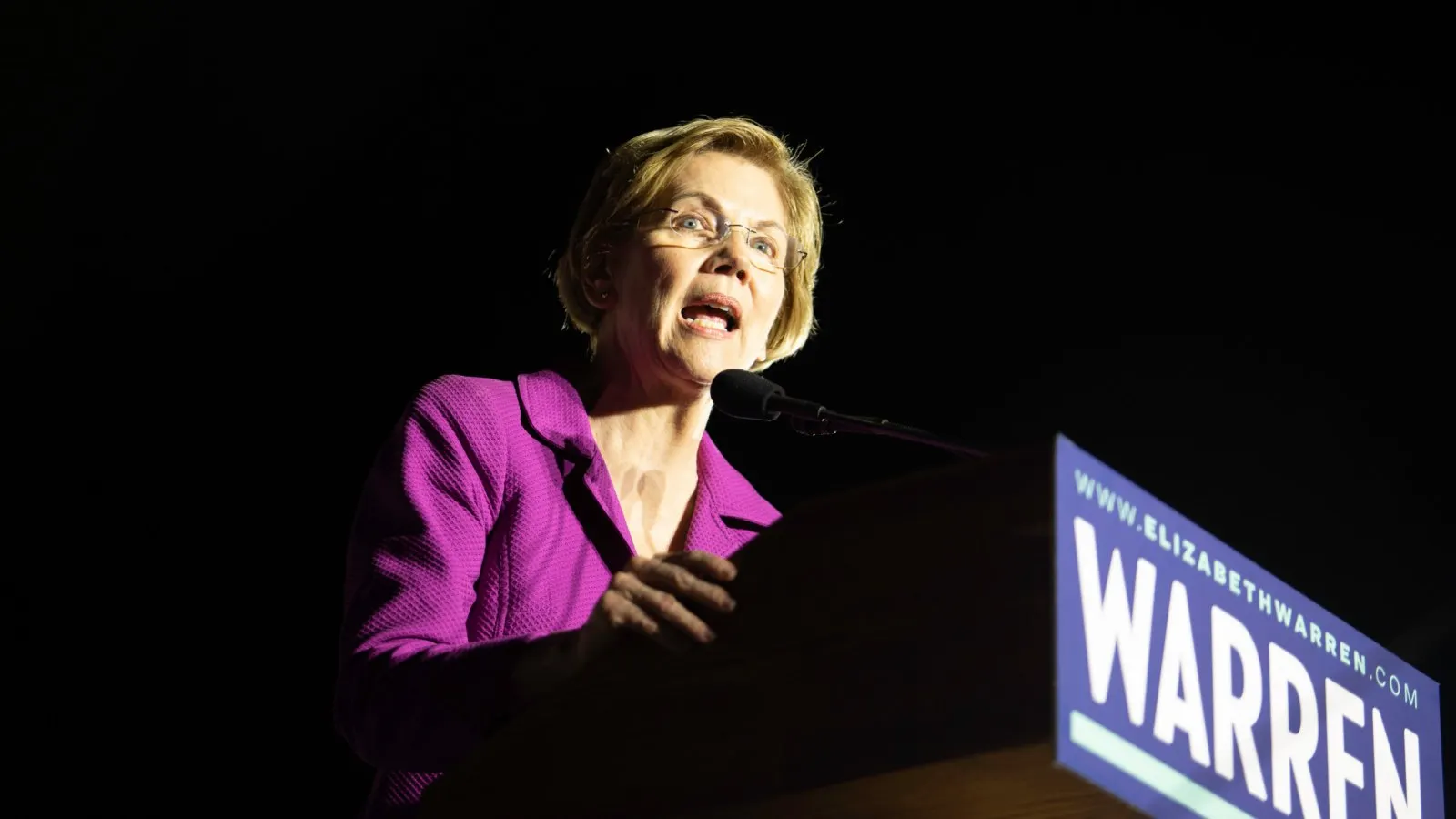- Warren pushes Treasury to close GENIUS Act’s crypto regulation gaps.
- Trump-backed stablecoin law sparks new conflict over financial safeguards.
- Lawmakers prepare bipartisan talks as Warren demands stronger crypto oversight.
Senator Elizabeth Warren has intensified her criticism of the newly enacted Guiding and Establishing Innovation for U.S. Stablecoins Act, commonly known as the GENIUS Act, warning that the law could expose the financial system to serious risks if not properly implemented.
She described the measure as a “light-touch regulatory framework for crypto banks” and pressed the Treasury Department to close regulatory loopholes that could benefit allies of President Donald Trump.
According to Punchbowl News, Warren made her remarks in a letter addressed to Treasury Secretary Scott Bessent. In it, the Massachusetts Democrat, who serves as the top member of the Senate Banking Committee, urged the department to protect consumers, taxpayers, and national security by enforcing stronger oversight on stablecoin issuers.
She argued that Treasury has a critical role in preventing financial instability tied to digital assets.
Signed into law by President Trump in July, the GENIUS Act requires that stablecoins be fully backed by U.S. dollars or similarly liquid assets. It also mandates annual audits for issuers with more than $50 billion in market capitalization and sets guidelines for foreign-based issuers.
Key agencies are now developing the rules to carry out the law, but Warren and several regulators warn that its framework leaves too many questions unanswered.
Also Read: Crypto Shake-Up: Bitcoin Steady, Ethereum and XRP Lead Daily Decline
Warren Warns of Conflicts and Consumer Risks
In her letter, Warren raised concerns about potential conflicts of interest linked to Trump’s business allies, noting that the implementation process could open doors for political or financial influence. She stressed that the Treasury should ensure no individual or company receives favorable treatment in a way that undermines public trust or market fairness.
Besides those conflict issues, Warren also highlighted consumer protection as a major weakness in the law. She said it fails to establish clear safeguards for users or address how losses from stablecoin failures would be handled. She believes this gap could expose Americans to the same risks that have fueled collapses in the crypto market before.
Federal Reserve Governor Michael Barr recently echoed similar concerns, calling the GENIUS Act incomplete and urging coordination between federal and state banking regulators to close the remaining gaps. His remarks added weight to Warren’s push for tougher enforcement as policymakers prepare new legislation to regulate the crypto industry more broadly.
Lawmakers Begin Next Phase of Crypto Regulation
As congressional leaders move forward, both parties are preparing separate discussions with crypto executives to shape upcoming digital asset rules. Senate Democrats are expected to meet with industry figures at 11:30 a.m. ET, followed by Republicans at 2 p.m. ET on Wednesday, according to a person familiar with the meetings.
Warren noted that Treasury could use these bipartisan talks to correct the weaknesses within the GENIUS Act and establish stronger guardrails for the entire crypto market. She believes that future legislation should prevent regulatory capture and strengthen accountability for stablecoin issuers operating under the new system.
Warren’s latest intervention underscores growing tension between the White House, Congress, and regulators over how to balance innovation with stability. Her call for stricter enforcement signals that the debate over the GENIUS Act is far from over, as Washington continues to navigate the fast-changing world of digital finance.
Also Read: SharpLink Gaming Expands Ethereum Treasury Amid Market Volatility
